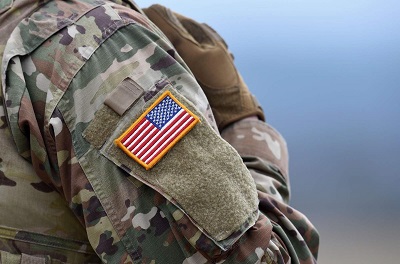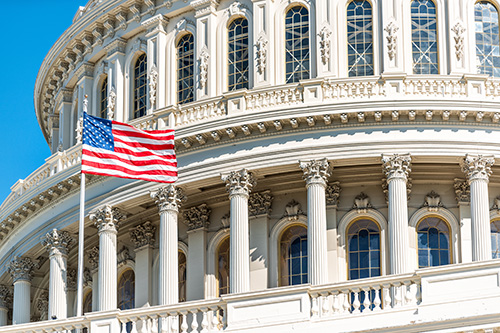The GOP Foreign Policy Debate
 Jeb Bush's big moment at the last debate came when he reminded Donald Trump that his brother kept America safe. This line received applause but what Bush, or for that matter, Rubio and others, have failed to do is explain why George Bush kept us safer.
Jeb Bush's big moment at the last debate came when he reminded Donald Trump that his brother kept America safe. This line received applause but what Bush, or for that matter, Rubio and others, have failed to do is explain why George Bush kept us safer.
The last debate showed a schism that the media has yet to truly fully explore: the difference among Republicans and conservatives about what a future American policy would look like. Who would have thought that Ben Carson would have been even more non-interventionist than even Rand Paul, the libertarian non-interventionist candidate or that Trump would make his opposition to the Iraq invasion a sign of his brilliance on foreign policy? There is a real debate on what America's role in the world is, and it goes beyond American’s military role in the world, but it also goes to trade. Trump is a hard core protectionist and Trump has made it clear that he is willing to start trade wars in order to negotiate “the right deal,” and there are times that Trump sounds like his ideal economic policy is an American autarky, in which America is sealed off from the world in trade. Protectionism is a radical departure from Republican economic platforms since World War II, and Trump has made it clear that NAFTA will be overturned. One gets the impression that Trump is not only going to build a wall to keep Mexicans out but he seems determined to destroy the Mexican economy in the process.
Carson made it clear that he would not have invaded Afghanistan after 9/11, and Trump's argument against Iraq’s invasion is that the invasion unleashed the present chaos in the Middle East, including the rise of Iranian hegemony in Iraq and throughout the Middle East. Trump's thesis is quite popular and quite wrong as I have noted in past articles. So what should Bush, Fiorina or Rubio argue in future debates in dispelling the Trump thesis? Trump's thesis actually allows Democrats off the hook and minimizes the Obama/Clinton/Biden foreign policy blunders since it puts the entire blame on Bush’s decision to invade Iraq. Rarely are those who argued against the Iraq invasion ever forced to explain why the Middle East would be better with two anti-American dictators in place. (Of course both Biden and Clinton voted for the war, so they have even more to explain since their policies after 2009 led to the present disaster.)
Trump's thesis begins that Iraq would have been a bulwark against Iran, but that is based on the idea that Saddam Hussein would have been willing to work with us against Iran and not against our interest in the region against our other allies, something that he did not do in the past as his invasion of Kuwait showed, and history is full of the unexpected. In July of 1939, who would have anticipated in London or Paris that the Soviet Union would have signed a non-aggression pact with Nazi Germany? This allowed Hitler to invade Poland without the fear of a two front war and allowed him to defeat France nine months later and nearly bringing Great Britain to her knees.
Here is what we do know as facts. In 2009, the Iraqi army backed up by American power defeated the Shiits militia, and this was after the American surge defeated the Iraqi’s insurgency, including both Shiites and Al-Qaeda. The Middle East that Obama inherited was stable as the Middle East goes. Libya was run by a dictator who gave up his chemical weapons after the death of Hussein, Yemen was stable, Syria was quiet after the Israelis bombed their nuclear facilities, and Iran was isolated and suffering economically. In the summer of 2009, Iran exploded into protest and there was even the possibility that the Mullahs' hold on power looked shaky. Russia was not busy craving up Ukraine, and China was not challenging the United States in the Western Pacific. So Trump has to be forced to answer the same question that Clinton, Biden or Sanders has to answer in the general election: did Obama's refusal to allow a residual force to stay in place lead to our present situation? Trump's thesis that our invasion led to our present circumstance needs to be challenged, and if Trump, Biden and Clinton supported Obama's decision to remove all troops from Iraq in 2011, then they have to explain why it was good policy to defend the chaos that ensued afterwards.
Trump's protectionism needs to be challenged simply based on solid economic ground that free trade or freer trade benefits the overall economy and explain how reducing international trade helps the United States. The questions as to what extent America needs to be involved in the world and when do we use military force to defend our national interest are being seriously debated.








